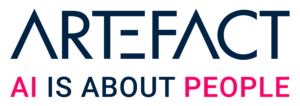Key learnings from the round table with BNP Paribas at the Adopt AI Summit by Artefact - June 5, 2024
About Bernard Gavgani: Bernard is responsible for overseeing the bank’s technological advancements and digital transformation initiatives. He has extensive experience in the financial sector, leading various IT and innovation projects to enhance operational efficiency and customer service.
About Su Yang: Su leads the development and implementation of AI-driven solutions to optimize banking transactions. With a background in data management and a key role in defining data strategies for the French Ministry of Finance, he brings extensive expertise in leveraging AI to enhance operational performance and customer experience
About BNP Paribas: BNP Paribas is one of the largest banks in Europe, providing a wide range of financial services to individuals, businesses, and institutional clients. The bank is known for its innovative approach and commitment to leveraging advanced technologies like AI to enhance customer service and operational efficiency.
Strategy and investments
BNP Paribas has implemented a proactive strategy to integrate artificial intelligence (AI) into its operations, with sustained investment in this technology to enhance customer experience, strengthen operational performance, and ensure a secure environment. The bank aims to deploy more than 1,000 AI use cases by 2025.
Team and resources
BNP Paribas has over 700 data scientists and managers specialized in AI, working together to develop and implement AI solutions across the organization. Moreover, there are currently about 100 use cases of generative AI in the testing phase, demonstrating the bank’s commitment to exploring and exploiting the most advanced AI technologies.
Areas of AI application
BNP Paribas leverages AI to enhance customer knowledge and experience by analyzing data to personalize offers and services, increasing satisfaction and loyalty. AI reduces processing times, such as speeding up real estate loan approvals. Operationally, AI automates tasks, improving efficiency and cutting costs through systems that handle documents, customer queries, and transactions. The bank also optimizes information processing with intelligent document factories. Additionally, AI is crucial for risk detection and prevention, monitoring transactions to identify fraud and analyzing patterns to detect money laundering, ensuring regulatory compliance.
Public sector
AI has significantly improved public services in France. An innovative real estate project used drones to detect 146,000 undeclared constructions, generating an additional 43 million euros in annual revenue. AI also helps legislators manage proposals more efficiently, cutting task times from seven hours to minutes and ensuring consistency in government positions. Additionally, the “Albert” chatbot simplifies and speeds up administrative procedures.
Finance sector
“Our biggest challenge in the financial sector will be acquiring the necessary talent for AI product industrialization while ensuring we work on high-priority business cases securely. This requires shifting our focus from solely investing in data science profiles to also building infrastructure, implementation teams, and robust data handling capabilities.”Su Yang, Head of AI for Transaction Banking at BNP Paribas
AI offers many opportunities to enhance various aspects of the financial sector. It improves client protection by enhancing fraud detection systems and making alerts more precise. AI also speeds up client service by reducing response times and improving document generation. Moreover, AI boosts operational efficiency. BNP Paribas is developing group-level AI capabilities, such as their “duck factory,” for intelligent document processing, expanding its use across the group.
Visit adoptai.artefact.com

 BLOG
BLOG



